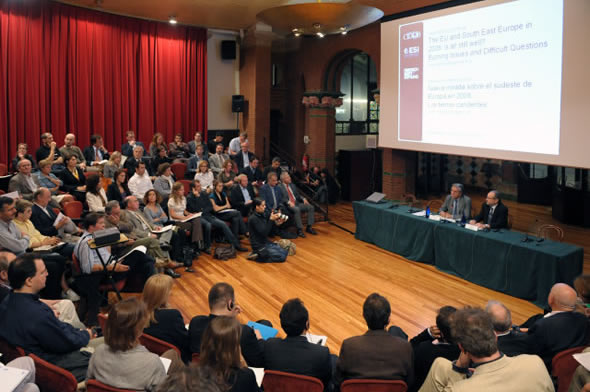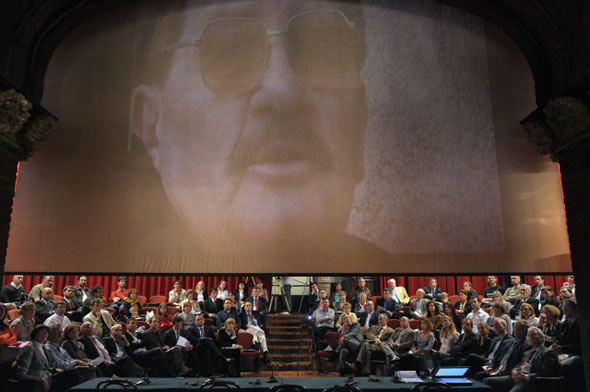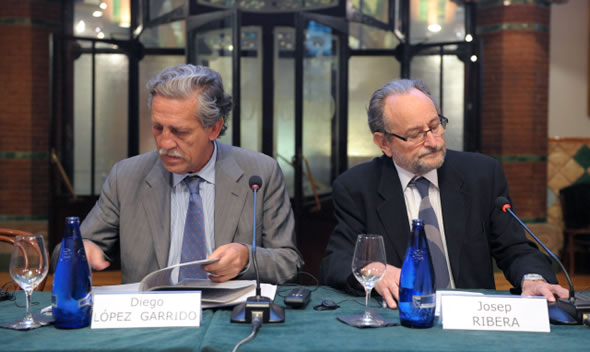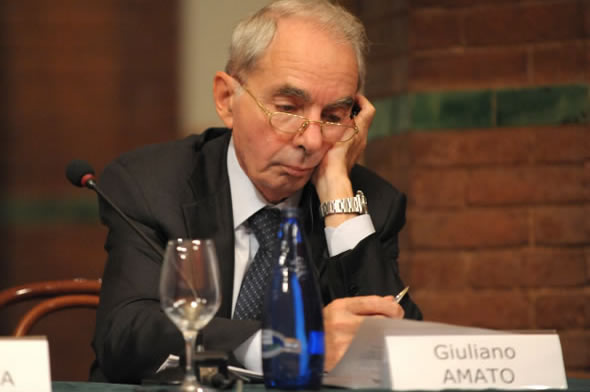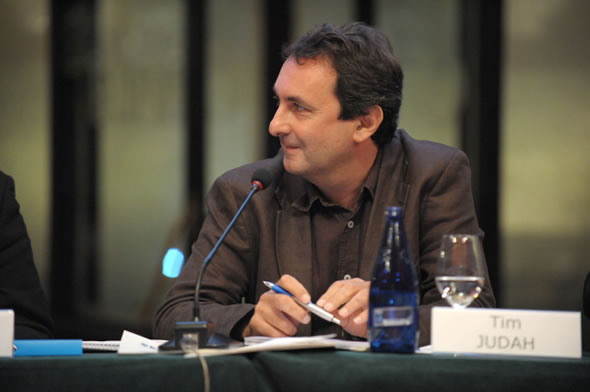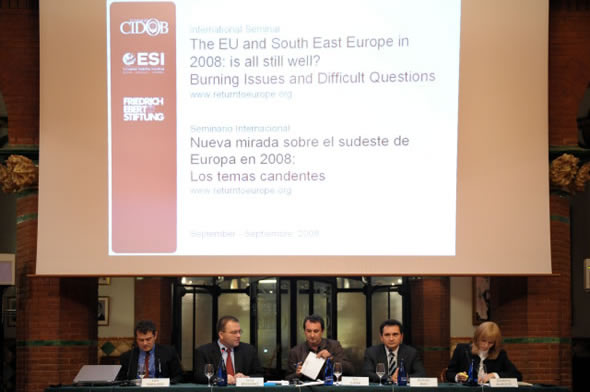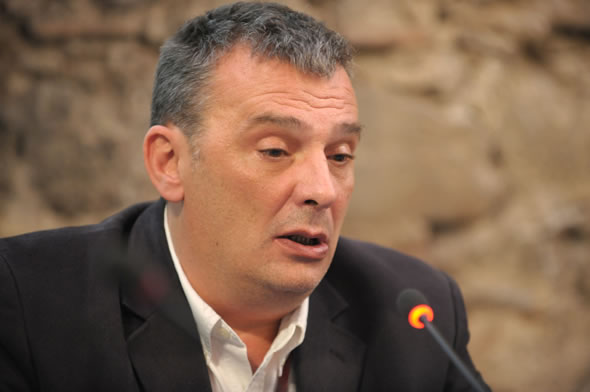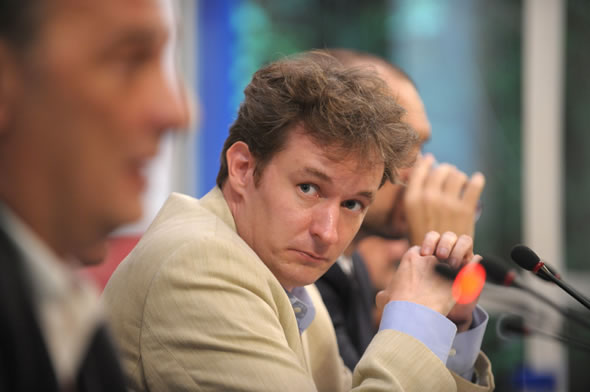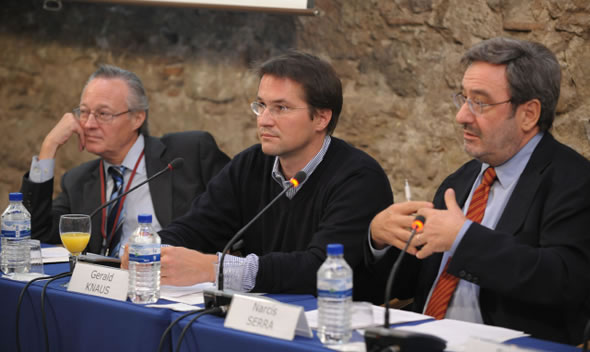Conference in Barcelona: The EU and South East Europe in 2008

THE EU AND SOUTH EAST EUROPE IN 2008: IS ALL STILL WELL?
BURNING ISSUES AND DIFFICULT QUESTIONS
Organised by
CIDOB Foundation, the Open Society Institute Fellowship Program (OSI),
European Stability Initiative (ESI), Friedrich-Ebert-Stiftung (FES, Madrid)



Barcelona, September 22-23, 2008
Why this conference on South East Europe? It is the conviction of the organisers that developments in the past 12 months – whether in Dublin or Ankara, Belgrade or Pristina – warrant a fresh look at the region. More than that, they require asking difficult questions.
- Is Turkey still on track for EU accession?
- Does the internal crisis of the EU mean that no Western Balkans countries should submit membership applications anytime soon?
- Are there still "deep states" – security structures beyond democratic control – in some of the larger countries of the region?
- Is the EU serious about visa free travel for the region as a goal and is the region serious about combating organised crime and curbing illegal migration?
- What experiences from Spain's development in the past 30 years are relevant to South East European countries?
PROGRAMME
MONDAY, 22nd
Open to a wider public; simultaneous translation from English to Spanish
Venue: Palau de la Música (Address: Palau de la Música, 4-6 – 08003 Barcelona)
16:30 Opening: Diego López Garrido, State Secretary for the EU, Spanish Ministry of Foreign Affairs and Cooperation
17:00 Return to Europe–the film: Gerald Knaus, Chairman ESI / Open Society Fellow 2008
Introductory presentation with clips
17:45 Return to Europe I: Why South East Europe matters for the EU
Panel discussion moderated by Pere Vilanova, Professor of Political Science. Director, Division for Strategic Issues and Security, Ministry of Defence, Madrid
Panel:
- Giuliano Amato, Former Prime Minister of Italy, Rome
- Ivan Krastev, Director, Centre for Liberal Strategies, Sofia
- Loukas Tsoukalis, Director, ELIAMEP, Athens
- İshak Alaton, Chairman of Alarko Holding, Istanbul
18:45 Return to Europe II: the next 18 months – where will SEE enlargement be by the end of the Swedish presidency in 2009?
Panel discussion moderated by Tim Judah, The Economist, London
Panel:
- Ivica Bocevski, Deputy Prime Minister of Macedonia, Skopje
- Božidar Đelić, Deputy Prime Minister of Serbia, Belgrade
- Gordana Đurović, Deputy Prime Minister of Montenegro, Podgorica
- Lars Wahlund, Ambassador, Swedish Ministry of Foreign Affairs, Stockholm
TUESDAY, 23rd
Only for invited participants. Working language: English without simultaneous translation
Venue: CIDOB Foundation (Address: Elisabets, 12 – 08001 Barcelona)
09:30-10:30 EXIT EUROPE? Serbia since October 2000: Premier documentary screening
10:30-11:30 Is the EU serious about visa liberalisation?
Are the fears of EU interior ministers of organised criminals or illegal work migration justified? Are countries of the region doing enough?
Panel discussion moderated by Alex Stiglmayer, Senior Analyst, ESI, Brussels
- Alina Mungiu Pippidi, Founder of SAR in Bucharest, Hertie School, Berlin
- Radmila Šekerinska, Former Deputy Prime Minister of Macedonia, Skopje
- Giuliano Amato, former Italian Prime Minister and Interior Minister, Rome
11:30-12:00 Debate
12:00-12:30 Coffee break
12:30-13:30 Does Turkey still meet the Copenhagen criteria?
What does the serious political crisis in Turkey in the first half of 2008 tell us about the state of Turkish democracy? How strong is domestic opposition to continued Turkish reforms? Is Turkey's EU accession process still on track?
Panel discussion moderated by Nigar Göksel, Senior Analyst, ESI, Istanbul
- Kai Strittmatter, Süddeutsche Zeitung, Istanbul
- Atila Eralp, Director Middle East Technical University (CES- METU), Ankara
- Yavuz Baydar, Columnist, Today's Zaman, Istanbul
13:30-14:00 Debate
14:30-15:30 Lunch
16:00-17:00 Images and realities in South East Europe
Is the region really in a much better state than its reputation? Or is complacency about the stability of the region a danger?
Panel discussion moderated by Michael Martens, Frankfurter Allgemeine Zeitung, Belgrade
- Edi Rama, Mayor of Tirana
- Dejan Anastasijević, Vreme, Belgrade
- Bajram Rexhepi, Mayor of Mitrovica
- Srđan Darmanović, CEDEM, Podgorica
17:00-17:30 Debate
17:30-17:45 Coffee break
17:45-18:30 What can be learned from the Spanish experience?
How did Spain bring its Armed Forces under democratic control, negotiate, enter and make a success of its EU membership, and deal with controversial issues related to its authoritarian past?
Panel discussion moderated by Gerald Knaus, Chairman ESI, Istanbul
- Narcís Serra, President CIDOB Foundation, Former Minister of Defence and former Vice-Prime Minister of Spain, Barcelona
- Pere Vilanova, Director, Division for Strategic Issues and Security, Ministry of Defence, Madrid
- Josep Piqué, Chairman of Vueling Airlines. Former Minister for Industry (1996-2000) and Minister of Foreign Affairs (2000-2003), Barcelona
18:30-19:00 Debate
19:00-19:15 Closing: Gerald Knaus (ESI), Alexander Kallweit (FES), Narcís Serra (CIDOB)
PARTICIPANTS
 Ishak Alaton is Chairman of the Board of Alarko Holding A.Ş. which he co-founded in 1954 in Istanbul. Since that time, his company has grown into a group of 22 independent daughter companies, with a total of 6,400 employees, working in diverse fields such as contracting in Turkey, the Middle East, Russia and CIS Republics, building and operating hydro-electric and thermal power plants, industrial goods, air-conditioning equipment, or tourism. He has strong personal and professional ties to Sweden. In 1993, he was honoured by the King of Sweden with the Nordstjaernan (North Star) order. In 2007, he was honoured by the King of Spain with the 'Mérito Civil' award. He is also Honorary Consul General of South Africa in Istanbul since 1995 and Chairman of the Board of the Turkish think tank TESEV.
Ishak Alaton is Chairman of the Board of Alarko Holding A.Ş. which he co-founded in 1954 in Istanbul. Since that time, his company has grown into a group of 22 independent daughter companies, with a total of 6,400 employees, working in diverse fields such as contracting in Turkey, the Middle East, Russia and CIS Republics, building and operating hydro-electric and thermal power plants, industrial goods, air-conditioning equipment, or tourism. He has strong personal and professional ties to Sweden. In 1993, he was honoured by the King of Sweden with the Nordstjaernan (North Star) order. In 2007, he was honoured by the King of Spain with the 'Mérito Civil' award. He is also Honorary Consul General of South Africa in Istanbul since 1995 and Chairman of the Board of the Turkish think tank TESEV.
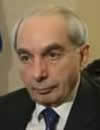 Giuliano Amato is Professor of Comparative Constitutional Law and has been a Member of the Italian Parliament for 18 years. During these years, he was Under Secretary to the Prime Minister's Office, Minister for the Treasury, Minister for Constitutional Reforms, Minister of Interior, Deputy Prime Minister and twice Prime Minister (in 1992/1993 and in 2000/2001). He also headed the Italian Antitrust Authority from 1994 to 1997 and was Vice-President of the Convention on the Future of Europe (2002/2003) and Chairman of the International Commission on the Balkans. In 2002, he was elected Honorary Fellow of the American Academy of Arts and Sciences. Mr Amato has written numerous books and articles on economy and public institutions, European antitrust, personal liberties, comparative government, European integration and humanities.
Giuliano Amato is Professor of Comparative Constitutional Law and has been a Member of the Italian Parliament for 18 years. During these years, he was Under Secretary to the Prime Minister's Office, Minister for the Treasury, Minister for Constitutional Reforms, Minister of Interior, Deputy Prime Minister and twice Prime Minister (in 1992/1993 and in 2000/2001). He also headed the Italian Antitrust Authority from 1994 to 1997 and was Vice-President of the Convention on the Future of Europe (2002/2003) and Chairman of the International Commission on the Balkans. In 2002, he was elected Honorary Fellow of the American Academy of Arts and Sciences. Mr Amato has written numerous books and articles on economy and public institutions, European antitrust, personal liberties, comparative government, European integration and humanities.
 Dejan Anastasijević is a Senior Investigative reporter for the Belgrade-based VREME weekly and a free-lance Balkan correspondent for TIME magazine. His reports and analyses were also published in a number of local and foreign news media, including Frankfurter Allgemeine Zeitung, The Washington Post, Die Presse, Koha Ditore, Zeri and The Guardian. In October 2002, Mr Anastasijević was the first Serbian journalist to testify against Slobodan Milosevic in the Hague. His more recent reports mostly deal with security issues and organized crime in Serbia. In April 2007, he survived an assassination attempt with two hand grenades placed on his bedroom window. The police investigation failed to yield any results. Since August 2008, Anastasijević is VREME's foreign correspondent in Brussels.
Dejan Anastasijević is a Senior Investigative reporter for the Belgrade-based VREME weekly and a free-lance Balkan correspondent for TIME magazine. His reports and analyses were also published in a number of local and foreign news media, including Frankfurter Allgemeine Zeitung, The Washington Post, Die Presse, Koha Ditore, Zeri and The Guardian. In October 2002, Mr Anastasijević was the first Serbian journalist to testify against Slobodan Milosevic in the Hague. His more recent reports mostly deal with security issues and organized crime in Serbia. In April 2007, he survived an assassination attempt with two hand grenades placed on his bedroom window. The police investigation failed to yield any results. Since August 2008, Anastasijević is VREME's foreign correspondent in Brussels.
 Maria Åsenius is Deputy Head of Cabinet for EU enlargement Commissioner Olli Rehn since August 2004. Her areas of responsibility include Croatia and the Former Yugoslav Republic of Macedonia, as well as relations with the European Parliament. Ms Åsenius has been policy adviser to the President of the European Parliament and administrator in the ELDR-group of the European Parliament. Before working in Brussels, she worked for the Swedish government and as a free-lance journalist in Brasilia and Paris and for the business weekly Veckans affärer.
Maria Åsenius is Deputy Head of Cabinet for EU enlargement Commissioner Olli Rehn since August 2004. Her areas of responsibility include Croatia and the Former Yugoslav Republic of Macedonia, as well as relations with the European Parliament. Ms Åsenius has been policy adviser to the President of the European Parliament and administrator in the ELDR-group of the European Parliament. Before working in Brussels, she worked for the Swedish government and as a free-lance journalist in Brasilia and Paris and for the business weekly Veckans affärer.
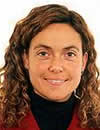 Meritxell Batet has been a Member of the Spanish Parliament since March 2004 and belongs to the Socialist Parliamentary Group. As MP, she is the spokesperson of the Public Administrations Committee and also a Member of the Constitutional, Foreign Affairs and European Union Committees. In addition, she is a Member of the Spanish Parliamentary delegations to the Council of Europe and the Western European Union. She has acted as electoral observer in Serbia (twice), Ukraine (four times), Moldova, Armenia and Georgia. She graduated in law at Pompeu Fabra University (Barcelona, 1995), where she also carried out her doctoral studies. She is a Professor in Constitutional Law and conducts research on topics regarding constitutional and administrative law. Her previous professional experience includes managing the Carles Pi i Sunyer Foundation of Local and Regional studies.
Meritxell Batet has been a Member of the Spanish Parliament since March 2004 and belongs to the Socialist Parliamentary Group. As MP, she is the spokesperson of the Public Administrations Committee and also a Member of the Constitutional, Foreign Affairs and European Union Committees. In addition, she is a Member of the Spanish Parliamentary delegations to the Council of Europe and the Western European Union. She has acted as electoral observer in Serbia (twice), Ukraine (four times), Moldova, Armenia and Georgia. She graduated in law at Pompeu Fabra University (Barcelona, 1995), where she also carried out her doctoral studies. She is a Professor in Constitutional Law and conducts research on topics regarding constitutional and administrative law. Her previous professional experience includes managing the Carles Pi i Sunyer Foundation of Local and Regional studies.
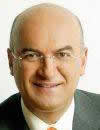 Yavuz Baydar is a Political Columnist for the Turkish daily Today's Zaman in Istanbul. He regularly comments on current domestic, foreign policy EU issues. He also has a weekly current affairs debate show, named "Rota" on STV Haber channel. Mr Baydar's 27 years of experience in the profession cover print and audiovisual media. He worked as producer and news presenter for Swedish radio and TV stations and as a correspondent for Scandinavia and the Baltic for the Turkish daily Cumhuriyet in the 1980's. After two years as producer and editor with the "BBC World Service" in London, he returned to Turkey and worked as editor with the dailies Yeni Yüzyıl, Milliyet and Sabah. Mr Baydar served as president of the International Organization of News Ombudsmen (ONO) from 2003 to 2004.
Yavuz Baydar is a Political Columnist for the Turkish daily Today's Zaman in Istanbul. He regularly comments on current domestic, foreign policy EU issues. He also has a weekly current affairs debate show, named "Rota" on STV Haber channel. Mr Baydar's 27 years of experience in the profession cover print and audiovisual media. He worked as producer and news presenter for Swedish radio and TV stations and as a correspondent for Scandinavia and the Baltic for the Turkish daily Cumhuriyet in the 1980's. After two years as producer and editor with the "BBC World Service" in London, he returned to Turkey and worked as editor with the dailies Yeni Yüzyıl, Milliyet and Sabah. Mr Baydar served as president of the International Organization of News Ombudsmen (ONO) from 2003 to 2004.
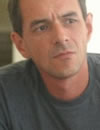 Kristof Bender leads ESI research projects in Bosnia and Herzegovina, Bulgaria, Macedonia and Montenegro as Senior Analyst. Educated in sociology in Vienna and Paris, he has worked in South East Europe in various capacities since 1997, including managing higher education projects in Bosnia for the World University Service, as Attaché for Humanitarian Affairs in the Austrian Embassy in Belgrade, as a researcher for the International Centre for Migration Policy Development and as a consultant for various institutions, including the Austrian Federal Chancellery, DFID and SIDA. Part of the ESI team since early 2000, he has been living in Bosnia and Herzegovina, Macedonia, Montenegro and Serbia, and is currently based in Vienna.
Kristof Bender leads ESI research projects in Bosnia and Herzegovina, Bulgaria, Macedonia and Montenegro as Senior Analyst. Educated in sociology in Vienna and Paris, he has worked in South East Europe in various capacities since 1997, including managing higher education projects in Bosnia for the World University Service, as Attaché for Humanitarian Affairs in the Austrian Embassy in Belgrade, as a researcher for the International Centre for Migration Policy Development and as a consultant for various institutions, including the Austrian Federal Chancellery, DFID and SIDA. Part of the ESI team since early 2000, he has been living in Bosnia and Herzegovina, Macedonia, Montenegro and Serbia, and is currently based in Vienna.
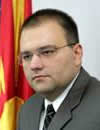 Ivica Bocevski is Deputy Prime Minister of the Republic of Macedonia and one of the founders and first Executive Director of the Institute for Democracy in Skopje. He worked in the Government of the Republic of Macedonia and the Ministry of Foreign Affairs, and was appointed Spokesperson of the Government of the Republic of Macedonia in March 2007. He has participated at numerous seminars, forums, and trainings in the areas of political science, applied politics, and international relations organised by domestic and foreign educational and research institutions. He has published a number of expert articles in domestic and foreign journals, and for a time worked as columnist in Utrinski Vesnik.
Ivica Bocevski is Deputy Prime Minister of the Republic of Macedonia and one of the founders and first Executive Director of the Institute for Democracy in Skopje. He worked in the Government of the Republic of Macedonia and the Ministry of Foreign Affairs, and was appointed Spokesperson of the Government of the Republic of Macedonia in March 2007. He has participated at numerous seminars, forums, and trainings in the areas of political science, applied politics, and international relations organised by domestic and foreign educational and research institutions. He has published a number of expert articles in domestic and foreign journals, and for a time worked as columnist in Utrinski Vesnik.
 Jos Boonstra is a Senior Researcher with the democratisation programme at FRIDE in Madrid. Prior to joining FRIDE in 2006, he was a Programme Manager and Head of Research at the Centre for European Security Studies (CESS) in the Netherlands. At FRIDE Mr Boonstra focuses on democratisation, defence and security issues in the Western Balkans, Eastern Europe, Turkey, the Southern Caucasus and Central Asia. Mr Boonstra regularly gives lectures, presentations and is involved in training defence and security institutions in the former Soviet Union. He has published extensively on EU and NATO enlargement policies, OSCE policies and security and democracy in countries such as Macedonia, Serbia, Moldova and Turkey.
Jos Boonstra is a Senior Researcher with the democratisation programme at FRIDE in Madrid. Prior to joining FRIDE in 2006, he was a Programme Manager and Head of Research at the Centre for European Security Studies (CESS) in the Netherlands. At FRIDE Mr Boonstra focuses on democratisation, defence and security issues in the Western Balkans, Eastern Europe, Turkey, the Southern Caucasus and Central Asia. Mr Boonstra regularly gives lectures, presentations and is involved in training defence and security institutions in the former Soviet Union. He has published extensively on EU and NATO enlargement policies, OSCE policies and security and democracy in countries such as Macedonia, Serbia, Moldova and Turkey.
Carmen Claudín is Deputy Director at CIDOB Foundation (Barcelona Centre for International Information and Documentation) since 2000. Before her current position, she was CIDOB's Head of the Former Soviet Union, Central and Eastern Europe Unit from 1986 to 1999. She has lived in Russia and France and was the research assistant of Professor Eric Hobsbawn and Tamara Deutscher in London. A specialist on Russian domestic politics and post-communist societies, she has published on Soviet and Russian politics in Spanish media and regularly participates in international conferences.
 Ben Crampton is currently on loan to the Civilian Planning and Conduct Capability department of the Council Secretariat in Brussels where he is co-ordinating planning for the EU Monitoring Mission in Georgia. Normally, he is desk officer for Kosovo, Serbia and Montenegro in the Council Secretariat. Before moving to Brussels, Mr Crampton was Deputy Head of the Preparation Team for the International Civilian Office in Pristina from 2006 to 2007, during which time he was involved in the drafting of the Ahtisaari proposal. He held a series of posts in the Balkans, including advisory positions to the SRSG in UNMIK and the EUSR in Skopje. He is co-author with his father, Prof Richard Crampton of the "Atlas of Eastern Europe in the Twentieth Century" (Routledge, 1996) and is currently working on a chapter on UNMIK for a project on Exit Strategies and Peace Consolidation, led by Professor Richard Caplan of St Antony's College, Oxford.
Ben Crampton is currently on loan to the Civilian Planning and Conduct Capability department of the Council Secretariat in Brussels where he is co-ordinating planning for the EU Monitoring Mission in Georgia. Normally, he is desk officer for Kosovo, Serbia and Montenegro in the Council Secretariat. Before moving to Brussels, Mr Crampton was Deputy Head of the Preparation Team for the International Civilian Office in Pristina from 2006 to 2007, during which time he was involved in the drafting of the Ahtisaari proposal. He held a series of posts in the Balkans, including advisory positions to the SRSG in UNMIK and the EUSR in Skopje. He is co-author with his father, Prof Richard Crampton of the "Atlas of Eastern Europe in the Twentieth Century" (Routledge, 1996) and is currently working on a chapter on UNMIK for a project on Exit Strategies and Peace Consolidation, led by Professor Richard Caplan of St Antony's College, Oxford.
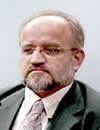 Srđan Darmanović is Professor of Comparative Politics and the Dean of the Faculty of Political Science at the University of Montenegro. He is also the President of the Centre for Democracy and Human Rights (CEDEM), a think-tank based in Podgorica and a Member of The Venice Commission (Commission for Democracy through Law) of the Council of Europe. Mr Darmanović authored and co-authored several books on civil society, political culture and institutional change in the post-Yugoslav countries. He is also a columnist with the daily Nasa Borba and the weekly Monitor. Mr Darmanović published articles in the Journal of Democracy and East European Constitutional Review. From 1992 to 1996, he was a MP in the Federal Parliament of Yugoslavia.
Srđan Darmanović is Professor of Comparative Politics and the Dean of the Faculty of Political Science at the University of Montenegro. He is also the President of the Centre for Democracy and Human Rights (CEDEM), a think-tank based in Podgorica and a Member of The Venice Commission (Commission for Democracy through Law) of the Council of Europe. Mr Darmanović authored and co-authored several books on civil society, political culture and institutional change in the post-Yugoslav countries. He is also a columnist with the daily Nasa Borba and the weekly Monitor. Mr Darmanović published articles in the Journal of Democracy and East European Constitutional Review. From 1992 to 1996, he was a MP in the Federal Parliament of Yugoslavia.
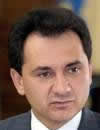 Božidar Đelić was Serbia's Deputy Prime Minister for European Integration until July 2008 and is Minister of Science and Technological Development. He worked as a privatization and banking sector advisor to the Russian, Romanian and Polish governments from 1991 to 1993. He was Serbia-Montenegro's Governor at the EBRD and Vice Governor at the World Bank. On behalf of Serbia he signed the Stabilisation and Association Agreement in Luxembourg on 29 April 2008. Recognizing his achievements in business and politics, the World Economic Forum in Davos nominated him as Young Global Leader for the period from 2005 to 2010. Mr Djelić published the book "Serbia: Things Will Get Better".
Božidar Đelić was Serbia's Deputy Prime Minister for European Integration until July 2008 and is Minister of Science and Technological Development. He worked as a privatization and banking sector advisor to the Russian, Romanian and Polish governments from 1991 to 1993. He was Serbia-Montenegro's Governor at the EBRD and Vice Governor at the World Bank. On behalf of Serbia he signed the Stabilisation and Association Agreement in Luxembourg on 29 April 2008. Recognizing his achievements in business and politics, the World Economic Forum in Davos nominated him as Young Global Leader for the period from 2005 to 2010. Mr Djelić published the book "Serbia: Things Will Get Better".
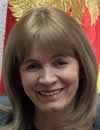 Gordana Đurović is Montenegro's Deputy Prime Minister for European Integration and Professor at the Faculty of Economics in Podgorica, where she teaches Economic Development, International Economic Relations, and Regional Economy. She is the Head of post-graduate studies in the field of European Economic Integration, where she teaches Economics and Enlargement Policy. Ms Djurović was project manager and associate on projects in the field of economic policy planning and sustainable development, especially on strategic developmental projects of the Government of the Republic of Montenegro. She is the author of more than fifty articles published in international and national professional journals, as well as the author of a number of papers relating to the economic development, comparative economic analysis, and European Integration. In June 2005, she was appointed Head of the Negotiating Team for the stabilization and association process, which was successfully completed by signing the Agreement (SAA) on 15 October 2007.
Gordana Đurović is Montenegro's Deputy Prime Minister for European Integration and Professor at the Faculty of Economics in Podgorica, where she teaches Economic Development, International Economic Relations, and Regional Economy. She is the Head of post-graduate studies in the field of European Economic Integration, where she teaches Economics and Enlargement Policy. Ms Djurović was project manager and associate on projects in the field of economic policy planning and sustainable development, especially on strategic developmental projects of the Government of the Republic of Montenegro. She is the author of more than fifty articles published in international and national professional journals, as well as the author of a number of papers relating to the economic development, comparative economic analysis, and European Integration. In June 2005, she was appointed Head of the Negotiating Team for the stabilization and association process, which was successfully completed by signing the Agreement (SAA) on 15 October 2007.
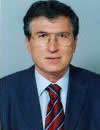 Atila Eralp is the Jean Monnet Chair and Director of the Centre for European Studies at the Middle East Technical University in Ankara. His research interests are politics of European integration, enlargement process of the EU, theories of European integration, comprehensive security, European security, Euro-Mediterranean relationship, Globalisation and the process of European integration. In the last twenty years he has written and lectured extensively on different aspects of Turkey-EU relations.
Atila Eralp is the Jean Monnet Chair and Director of the Centre for European Studies at the Middle East Technical University in Ankara. His research interests are politics of European integration, enlargement process of the EU, theories of European integration, comprehensive security, European security, Euro-Mediterranean relationship, Globalisation and the process of European integration. In the last twenty years he has written and lectured extensively on different aspects of Turkey-EU relations.
 Lluís Foix has worked for the Spanish newspaper La Vanguardia since 1970. During this time, he has been a reporter, correspondent, deputy editor and editor. Mr Foix has a degree in Journalism and in Law. He spent eight years in London as a correspondent and four years in Washington. He has travelled throughout the world covering wars, summits, elections and political events. Twice a week, he writes a column in La Vanguardia newspaper and also writes a daily piece in the on-line version of the newspaper. He writes a regular column in Avui, a Barcelona newspaper written in Catalan. He also publishes a weekly column in the sports newspaper El Mundo Deportivo. He regularly participates in radio and television talks on political and social issues.
Lluís Foix has worked for the Spanish newspaper La Vanguardia since 1970. During this time, he has been a reporter, correspondent, deputy editor and editor. Mr Foix has a degree in Journalism and in Law. He spent eight years in London as a correspondent and four years in Washington. He has travelled throughout the world covering wars, summits, elections and political events. Twice a week, he writes a column in La Vanguardia newspaper and also writes a daily piece in the on-line version of the newspaper. He writes a regular column in Avui, a Barcelona newspaper written in Catalan. He also publishes a weekly column in the sports newspaper El Mundo Deportivo. He regularly participates in radio and television talks on political and social issues.
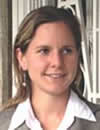 Diba Nigar Göksel joined the European Stability Initiative (ESI) in 2004. She works as a Senior Analyst on Turkey and the Caucasus. She is also Editor-in-Chief of Turkish Policy Quarterly (TPQ) since 2003. She began her career working for the Azerbaijan Embassy in Washington DC in 1998 and since has done project management, research and advocacy with various NGOs based in both Washington DC and Istanbul, including TUSIAD, IREX, TESEV, and the ARI Movement. She writes regularly for Turkish Daily News.
Diba Nigar Göksel joined the European Stability Initiative (ESI) in 2004. She works as a Senior Analyst on Turkey and the Caucasus. She is also Editor-in-Chief of Turkish Policy Quarterly (TPQ) since 2003. She began her career working for the Azerbaijan Embassy in Washington DC in 1998 and since has done project management, research and advocacy with various NGOs based in both Washington DC and Istanbul, including TUSIAD, IREX, TESEV, and the ARI Movement. She writes regularly for Turkish Daily News.
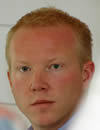 Robin Gosejohann works as Project Manager in the Europe Programme of ERSTE Foundation which is active in the South Eastern European region. Based in Vienna, he oversees initiatives with focus on journalism, media, youth and education. Prior to that, he worked for the think-tank European Stability Initiative (ESI), where he was responsible for programme coordination and management of the ESI offices in Berlin and Istanbul. He has a strong background in NGO work and political campaigning in both Britain and Germany. Mr Gosejohann studied modern and economic history in Bielefeld and Leipzig as well as peace and conflict studies in Uppsala.
Robin Gosejohann works as Project Manager in the Europe Programme of ERSTE Foundation which is active in the South Eastern European region. Based in Vienna, he oversees initiatives with focus on journalism, media, youth and education. Prior to that, he worked for the think-tank European Stability Initiative (ESI), where he was responsible for programme coordination and management of the ESI offices in Berlin and Istanbul. He has a strong background in NGO work and political campaigning in both Britain and Germany. Mr Gosejohann studied modern and economic history in Bielefeld and Leipzig as well as peace and conflict studies in Uppsala.
 Ulrike Guérot joined the European Council on Foreign Relations in July 2007 as a Senior Research Fellow and Head of the Berlin Office; previously she was senior transatlantic fellow with the German Marshall Fund (2004/2007), and prior to that headed the European Union unit at the German Council on Foreign Relations (DGAP) in Berlin (2000/2003). She has also worked as an assistant professor on European studies at John Hopkins University, as senior research fellow at Notre Europe in Paris, and as a staff member of the German Bundestag's commission on external affairs. She has been publishing widely on European and transatlantic issues on various journals and newspapers and is frequently invited to comment on various EU media. Recently, she was awarded the prestigious 'Ordre pour le Mérite' for her engagement for European integration.
Ulrike Guérot joined the European Council on Foreign Relations in July 2007 as a Senior Research Fellow and Head of the Berlin Office; previously she was senior transatlantic fellow with the German Marshall Fund (2004/2007), and prior to that headed the European Union unit at the German Council on Foreign Relations (DGAP) in Berlin (2000/2003). She has also worked as an assistant professor on European studies at John Hopkins University, as senior research fellow at Notre Europe in Paris, and as a staff member of the German Bundestag's commission on external affairs. She has been publishing widely on European and transatlantic issues on various journals and newspapers and is frequently invited to comment on various EU media. Recently, she was awarded the prestigious 'Ordre pour le Mérite' for her engagement for European integration.
 Leyla Alaton Günyeli is a Board Member of Alarko Holding A.Ş. in Istanbul. After graduating from New York University in 1986, Ms Günyeli became active for Alarko in various capacities. In 1992 she was chosen as the 'Business Woman of the Year' by the National Productivity Centre of Turkey. One year later, she was chosen as a 'Global Leader for Tomorrow' at the World Economic Forum in Davos. Ms Günyeli is a Member of several business NGOs such as TUSIAD (Turkish Industrialists and Businessmen's Association) or GYIAD (Young Executives and Businessmen's Association) and is Honorary Consul General of South of Africa in Istanbul.
Leyla Alaton Günyeli is a Board Member of Alarko Holding A.Ş. in Istanbul. After graduating from New York University in 1986, Ms Günyeli became active for Alarko in various capacities. In 1992 she was chosen as the 'Business Woman of the Year' by the National Productivity Centre of Turkey. One year later, she was chosen as a 'Global Leader for Tomorrow' at the World Economic Forum in Davos. Ms Günyeli is a Member of several business NGOs such as TUSIAD (Turkish Industrialists and Businessmen's Association) or GYIAD (Young Executives and Businessmen's Association) and is Honorary Consul General of South of Africa in Istanbul.
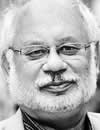 Rolf Gustavsson is a correspondent at the Svenska Dagbladet in Brussels since 1992. He is a Member of the Advisory Council at European Policy Centre (EPC) and a Member of the Board of Governors at the Centre for European Research at the University of Lund in Sweden. Mr Gustavsson was a Lecturer in Economic History at the University of Lund (1969/1972). He then worked as a researcher in Dakar for IDEP (1973/1974). In 1974, he worked at the Scandinavian Institute of African Studies in Uppsala University, then as a Chief Foreign Affairs Editor in the Swedish Television (1975/1977); as a Correspondent in the Swedish Radio and Television in Rome (1977/1979), as an Editor in Chief in the News department of the Swedish Television (Aktuellt) and as a correspondent for European Affairs at Swedish Television in Brussels (1984/1992). Rolf Gustavsson has written books on African affairs and on the European Integration.
Rolf Gustavsson is a correspondent at the Svenska Dagbladet in Brussels since 1992. He is a Member of the Advisory Council at European Policy Centre (EPC) and a Member of the Board of Governors at the Centre for European Research at the University of Lund in Sweden. Mr Gustavsson was a Lecturer in Economic History at the University of Lund (1969/1972). He then worked as a researcher in Dakar for IDEP (1973/1974). In 1974, he worked at the Scandinavian Institute of African Studies in Uppsala University, then as a Chief Foreign Affairs Editor in the Swedish Television (1975/1977); as a Correspondent in the Swedish Radio and Television in Rome (1977/1979), as an Editor in Chief in the News department of the Swedish Television (Aktuellt) and as a correspondent for European Affairs at Swedish Television in Brussels (1984/1992). Rolf Gustavsson has written books on African affairs and on the European Integration.
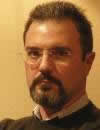 Carlos Flores Juberías is Professor of Comparative Constitutional Law and Director of the Doctoral Studies Program in Constitutional Law at the University of Valencia Law School. He was a Fulbright scholar (1993/1994) and visiting lecturer (1994/1995) at the University of California in San Diego, having visited the RFE/RL Research Institute in Munich and the Universities of Veszprém, Virginia and Trieste. His scholarly publications mainly focus on the comparative study of elections and electoral systems, the formation of party systems, constitution making processes, and European integration in the new East European democracies. He is also editor-in-chief of the quarterly Cuadernos Constitucionales, and Member of the International Advisory Committees of the Central European Political Science Review, the Public Administration and Local Government Centre in Belgrade, the Terror Háza in Budapest, and the Centro de Estudios y Análisis de Seguridad in Granada.
Carlos Flores Juberías is Professor of Comparative Constitutional Law and Director of the Doctoral Studies Program in Constitutional Law at the University of Valencia Law School. He was a Fulbright scholar (1993/1994) and visiting lecturer (1994/1995) at the University of California in San Diego, having visited the RFE/RL Research Institute in Munich and the Universities of Veszprém, Virginia and Trieste. His scholarly publications mainly focus on the comparative study of elections and electoral systems, the formation of party systems, constitution making processes, and European integration in the new East European democracies. He is also editor-in-chief of the quarterly Cuadernos Constitucionales, and Member of the International Advisory Committees of the Central European Political Science Review, the Public Administration and Local Government Centre in Belgrade, the Terror Háza in Budapest, and the Centro de Estudios y Análisis de Seguridad in Granada.
 Tim Judah covers the Balkans for the Economist. He is the author of three books on the region: "The Serbs: History, Myth and the Destruction of Yugoslavia" and "Kosovo: War & Revenge". The third, "Kosovo: What Everyone Needs to Know" will be published in September 2008. From 1990 to 1991 he lived in Bucharest and covered the aftermath of communism in Romania and Bulgaria for The Times and The Economist. After that he moved to Belgrade in order to cover the war in Yugoslavia. He moved back to London in 1995 but continues to travel frequently to the region. He writes almost all the coverage on the former Yugoslavia for The Economist and has also written about it for the New York Review of Books. Since 2001, he has also covered Afghanistan, Iraq, North Korea and Darfur. Last November he was in Georgia for The Economist, including Abkhazia and South Ossetia.
Tim Judah covers the Balkans for the Economist. He is the author of three books on the region: "The Serbs: History, Myth and the Destruction of Yugoslavia" and "Kosovo: War & Revenge". The third, "Kosovo: What Everyone Needs to Know" will be published in September 2008. From 1990 to 1991 he lived in Bucharest and covered the aftermath of communism in Romania and Bulgaria for The Times and The Economist. After that he moved to Belgrade in order to cover the war in Yugoslavia. He moved back to London in 1995 but continues to travel frequently to the region. He writes almost all the coverage on the former Yugoslavia for The Economist and has also written about it for the New York Review of Books. Since 2001, he has also covered Afghanistan, Iraq, North Korea and Darfur. Last November he was in Georgia for The Economist, including Abkhazia and South Ossetia.
- For ESI, Tim Judah has written many short book reviews in our Balkans literary walk as well as picture stories on Kosovo and Sarajevo.
 Gerald Knaus is the founder of the European Stability Initiative (ESI), a Berlin-based think tank working on South Eastern Europe, Turkey, the Caucasus and the future of European enlargement. He studied in Oxford, Brussels and Bologna. He taught economics at the State University of Chernivtsi in Ukraine and worked for five years in Bulgaria and Bosnia for NGOs and international organizations. He was director of the Lessons Learned Unit of the EU Pillar of the UN Mission in Kosovo (from 2001 to 2004). Mr Knaus published many articles and reports that have triggered wide public debates, including "Travails of the European Raj" on Bosnia (2003) and "Member State Building and the Helsinki Moment" on the EU role in the Balkans (2004). He also co-authored more than 60 ESI reports such as "Islamic Calvinists" (2005) and most recently "Sex and Power in Turkey" (2007) as well as many scripts for TV documentaries on South East Europe. He is a founding member of the European Council on Foreign Relations and a 2007/2008 Open Society Fellow. Since 2004 he is based in Istanbul.
Gerald Knaus is the founder of the European Stability Initiative (ESI), a Berlin-based think tank working on South Eastern Europe, Turkey, the Caucasus and the future of European enlargement. He studied in Oxford, Brussels and Bologna. He taught economics at the State University of Chernivtsi in Ukraine and worked for five years in Bulgaria and Bosnia for NGOs and international organizations. He was director of the Lessons Learned Unit of the EU Pillar of the UN Mission in Kosovo (from 2001 to 2004). Mr Knaus published many articles and reports that have triggered wide public debates, including "Travails of the European Raj" on Bosnia (2003) and "Member State Building and the Helsinki Moment" on the EU role in the Balkans (2004). He also co-authored more than 60 ESI reports such as "Islamic Calvinists" (2005) and most recently "Sex and Power in Turkey" (2007) as well as many scripts for TV documentaries on South East Europe. He is a founding member of the European Council on Foreign Relations and a 2007/2008 Open Society Fellow. Since 2004 he is based in Istanbul.
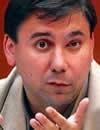 Ivan Krastev is a Political Scientist and Chairman of the Centre for Liberal Strategies in Sofia, Bulgaria. He is a founding member and member of the Board of the European Council on Foreign Relations (ECFR) and member of the Trilateral Commission. Ivan Krastev is also an Open Society Fellow and the academic Director of the Open Century Project of the Central European University in Budapest. In the last decade he has been a visiting fellow at St. Anthony College, Oxford; Woodrow Wilson Center for International Scholars in Washington; Collegium Budapest, Wissenschaftskolleg, Berlin; Institute of Federalism, University of Fribourg, Switzerland; Institute for Human Sciences, Vienna, Central European University, Budapest and Remarque Institute, New York University. Ivan Krastev was the executive director of the International Commission on the Balkans.
Ivan Krastev is a Political Scientist and Chairman of the Centre for Liberal Strategies in Sofia, Bulgaria. He is a founding member and member of the Board of the European Council on Foreign Relations (ECFR) and member of the Trilateral Commission. Ivan Krastev is also an Open Society Fellow and the academic Director of the Open Century Project of the Central European University in Budapest. In the last decade he has been a visiting fellow at St. Anthony College, Oxford; Woodrow Wilson Center for International Scholars in Washington; Collegium Budapest, Wissenschaftskolleg, Berlin; Institute of Federalism, University of Fribourg, Switzerland; Institute for Human Sciences, Vienna, Central European University, Budapest and Remarque Institute, New York University. Ivan Krastev was the executive director of the International Commission on the Balkans.
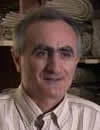 Remzi Lani is Executive Director of the Albanian Media Institute. He was Chief Editor of Zeri i Rinise newspaper (1983/1992), one of the first liberal newspapers in Albania. He also worked as a Correspondent for the Spanish Newspaper El Mundo and Zeri in Pristina (1995). He was a Media Coordinator at Soros foundation in Albania (1992/1995) and became Editor of Alternative Information Network in Tirana (1995/2000). Remzi Lani is the founding member of the first Human Rights Group in Albania "The Forum for Human Rights". He is the author of various articles on Balkan affairs as well as the co-author of the books "My Albania - Ground Zero" and "Masters of Humanist Philosophy". Mr Lani worked as an Expert for the International Commission for the Balkans, headed by Giuliano Amato (2004). He is the first President of the South East Network of Media Centres and Media Institutes and is now the Chairman of the Board for SEENPM, Member of the Board of Scripto Magazine, Member of UNESCO World Press Freedom Award Jury and Member of the Advisory Board of Balkan Trust for Democracy.
Remzi Lani is Executive Director of the Albanian Media Institute. He was Chief Editor of Zeri i Rinise newspaper (1983/1992), one of the first liberal newspapers in Albania. He also worked as a Correspondent for the Spanish Newspaper El Mundo and Zeri in Pristina (1995). He was a Media Coordinator at Soros foundation in Albania (1992/1995) and became Editor of Alternative Information Network in Tirana (1995/2000). Remzi Lani is the founding member of the first Human Rights Group in Albania "The Forum for Human Rights". He is the author of various articles on Balkan affairs as well as the co-author of the books "My Albania - Ground Zero" and "Masters of Humanist Philosophy". Mr Lani worked as an Expert for the International Commission for the Balkans, headed by Giuliano Amato (2004). He is the first President of the South East Network of Media Centres and Media Institutes and is now the Chairman of the Board for SEENPM, Member of the Board of Scripto Magazine, Member of UNESCO World Press Freedom Award Jury and Member of the Advisory Board of Balkan Trust for Democracy.
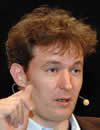 Michael Martens is a Foreign Correspondent for the Frankfurter Allgemeine Zeitung (F.A.Z.). Since 2002, he is based in Belgrade and is responsible for coverage of Albania, Bosnia, Bulgaria, Serbia, Greece, Macedonia, Moldova and Montenegro. Prior to his current assignment, he worked for two years in the newspaper's Frankfurt headquarters on the foreign desk, where he reported on the former Soviet Republics and South Asia and travelled extensively throughout the region. From 1995 to 2000, he was based in various capitals of the former Soviet Union (Central Asia, the Ukraine and Russia) and also covered Afghanistan. He has published several books, among them "Keeping up old sores" (1999, with Nobel-prize-winner Günter Grass). F.A.Z. reaches between 800,000 and one million readers daily. It is widely considered to be the most influential daily paper among decision makers published in German language.
Michael Martens is a Foreign Correspondent for the Frankfurter Allgemeine Zeitung (F.A.Z.). Since 2002, he is based in Belgrade and is responsible for coverage of Albania, Bosnia, Bulgaria, Serbia, Greece, Macedonia, Moldova and Montenegro. Prior to his current assignment, he worked for two years in the newspaper's Frankfurt headquarters on the foreign desk, where he reported on the former Soviet Republics and South Asia and travelled extensively throughout the region. From 1995 to 2000, he was based in various capitals of the former Soviet Union (Central Asia, the Ukraine and Russia) and also covered Afghanistan. He has published several books, among them "Keeping up old sores" (1999, with Nobel-prize-winner Günter Grass). F.A.Z. reaches between 800,000 and one million readers daily. It is widely considered to be the most influential daily paper among decision makers published in German language.
- Michael Martens on the 'Return to Europe' documentary: "Der Staat ist Gott auf Erden" (16 May 2008). Also available in English.
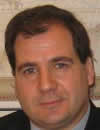 Ignacio Molina is a Senior Analyst for Europe at the Elcano Royal Institute of International and Strategic Studies. A Doctor in Political Science from Universidad Autónoma de Madrid, he is also an Associate Professor at the Department of Politics and International Relations at the same university. He has been a Visiting Fellow, as a Fulbright grantee, at Harvard University, and a Junior Visitor at Nuffield College (Oxford University). Prior to joining the Elcano Royal Institute in 2008, he was Area Co-ordinator for the EU at the Observatory of Spanish Foreign Policy (Opex, Fundación Alternativas). He has taught at more than 20 universities and postgraduate centres and has participated in a dozen of national and international research projects. His areas of interest and expertise cover Spanish EU policy-making, the relations between member states and the Union, the Europeanization of the Spanish government and, more broadly, the analysis of the state's institutional capacity and the policy-making process in Spain.
Ignacio Molina is a Senior Analyst for Europe at the Elcano Royal Institute of International and Strategic Studies. A Doctor in Political Science from Universidad Autónoma de Madrid, he is also an Associate Professor at the Department of Politics and International Relations at the same university. He has been a Visiting Fellow, as a Fulbright grantee, at Harvard University, and a Junior Visitor at Nuffield College (Oxford University). Prior to joining the Elcano Royal Institute in 2008, he was Area Co-ordinator for the EU at the Observatory of Spanish Foreign Policy (Opex, Fundación Alternativas). He has taught at more than 20 universities and postgraduate centres and has participated in a dozen of national and international research projects. His areas of interest and expertise cover Spanish EU policy-making, the relations between member states and the Union, the Europeanization of the Spanish government and, more broadly, the analysis of the state's institutional capacity and the policy-making process in Spain.
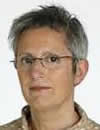 Rosa Massagué is a journalist who has developed most of her professional career at El Periódico de Catalunya, the daily Barcelona newspaper which she joined when it was founded in October 1978. Rosa Massagué has been correspondent in London and Rome. She has reported as special envoy on conflicts such as Northern Ireland, Cyprus, and the Balkans. She writes weekly columns for El Periódico and also runs the blog Asuntos Exteriores on the newspaper's website. Rosa Massagué also contributes with regular comments on radio and TV stations. She is the author of the book "El legado político de Blair" (2007).
Rosa Massagué is a journalist who has developed most of her professional career at El Periódico de Catalunya, the daily Barcelona newspaper which she joined when it was founded in October 1978. Rosa Massagué has been correspondent in London and Rome. She has reported as special envoy on conflicts such as Northern Ireland, Cyprus, and the Balkans. She writes weekly columns for El Periódico and also runs the blog Asuntos Exteriores on the newspaper's website. Rosa Massagué also contributes with regular comments on radio and TV stations. She is the author of the book "El legado político de Blair" (2007).
Michal Natorski is an affiliated lecturer in International Relations at the Universitat Autònoma de Barcelona and a PhD candidate in International Relations and European Integration at the same University. He is a member of the research team of the Observatory of European Foreign Policy at the Institut Universitari d'Estudis Europeus. His research focuses on EU relations with neighbouring countries, especially in its Eastern Dimension, the financial instruments of the external action of the European Union and foreign policies of Poland, Spain and Ukraine. He participated in numerous international academic conferences and published on the European Neighbourhood Policy, EU-Ukraine relations and EU's Member States policies.
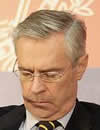 Charles Powell studied Modern History and Modern Language at Oxford University, where he also obtained his doctorate. Subsequently, he was Junior Research Fellow at St. Antony's College, Oxford, and Lecturer in History at Corpus Christi College, Oxford, and J. A. Pye Research Fellow at University College, Oxford. He is currently Deputy Director of the Elcano Royal Institute, Spain's leading international relations think-tank, and Associate Professor of History at Madrid's CEU San Pablo University. He is the author of five books and numerous articles on Spain's transition to democracy, including its international dimension, the history of Spanish foreign policy, Spain's role in the European Union, and Spanish-US relations.
Charles Powell studied Modern History and Modern Language at Oxford University, where he also obtained his doctorate. Subsequently, he was Junior Research Fellow at St. Antony's College, Oxford, and Lecturer in History at Corpus Christi College, Oxford, and J. A. Pye Research Fellow at University College, Oxford. He is currently Deputy Director of the Elcano Royal Institute, Spain's leading international relations think-tank, and Associate Professor of History at Madrid's CEU San Pablo University. He is the author of five books and numerous articles on Spain's transition to democracy, including its international dimension, the history of Spanish foreign policy, Spain's role in the European Union, and Spanish-US relations.
 Zoran Puljić is General Director of Mozaik Foundation, a Bosnian foundation that is co-financing tangible improvements in local communities in Bosnia and Herzegovina. He has been working at Mozaik since 2001. For many years he was actively involved in the promotion of civil society in Bosnia and Herzegovina and the region. Through involvement in improving living conditions of local communities, project support, initiatives, active participation and presentations on international seminars and conferences, Mr Puljić successfully completed a large number of projects. Currently he is enrolled in a postgraduate program at The London Development School of the London Metropolitan University.
Zoran Puljić is General Director of Mozaik Foundation, a Bosnian foundation that is co-financing tangible improvements in local communities in Bosnia and Herzegovina. He has been working at Mozaik since 2001. For many years he was actively involved in the promotion of civil society in Bosnia and Herzegovina and the region. Through involvement in improving living conditions of local communities, project support, initiatives, active participation and presentations on international seminars and conferences, Mr Puljić successfully completed a large number of projects. Currently he is enrolled in a postgraduate program at The London Development School of the London Metropolitan University.
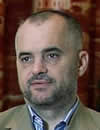 Edi Rama is the Mayor of Tirana and the President of the Albanian Socialist Party. Mr Rama was a Professor of Arts at the Albanian Academy of Arts and served as Minister of Culture, Youth and Sports (1998/2000). He is one of the founders and key players of the democratic movement that brought about the collapse of the communist state (1990/1992) as well as the founding member of the Movement for Democracy, a political group that played an important role in the struggle for democracy (1996/1997) and was formerly a Board member of the Open Society Foundation, Albania. Mr Rama's articles and analysis have been published in several newspapers and magazines such as the Klan Magazine, the newspaper Shekulli and Koha Jone as well as in the World Link Magazine and the World Economic Forum. In December 2004, the non-commercial organization CITYMAYORS awarded Mr Rama with the title of "World Mayor 2004".
Edi Rama is the Mayor of Tirana and the President of the Albanian Socialist Party. Mr Rama was a Professor of Arts at the Albanian Academy of Arts and served as Minister of Culture, Youth and Sports (1998/2000). He is one of the founders and key players of the democratic movement that brought about the collapse of the communist state (1990/1992) as well as the founding member of the Movement for Democracy, a political group that played an important role in the struggle for democracy (1996/1997) and was formerly a Board member of the Open Society Foundation, Albania. Mr Rama's articles and analysis have been published in several newspapers and magazines such as the Klan Magazine, the newspaper Shekulli and Koha Jone as well as in the World Link Magazine and the World Economic Forum. In December 2004, the non-commercial organization CITYMAYORS awarded Mr Rama with the title of "World Mayor 2004".
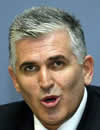 Bajram Rexhepi is a Surgeon by profession and entered politics in the mid-90s. He became Kosovo's first post-war Prime Minister from 2002 to 2004. After the 1999 conflict, he served as first Interim Mayor of Mitrovica Municipality. He was also a founding member of the Democratic Party of Kosovo (PDK). It was during his premiership that Kosovo's first Provisional Institutions of Self-Government were established. As a member of the presidency of the Democratic Party of Kosovo, Dr. Rexhepi is responsible for international relations and European Integration. His advice was sought regularly during the final status negotiations brokered by UN Special Envoy Martti Ahtisaari. In November 2007, he was elected Mayor of Mitrovica, a highly complex city effectively divided into an UN-administered North part of the city and an Albanian-majority South. In recognition of his political experience, he was also elected President of the Association of Kosovo Municipalities.
Bajram Rexhepi is a Surgeon by profession and entered politics in the mid-90s. He became Kosovo's first post-war Prime Minister from 2002 to 2004. After the 1999 conflict, he served as first Interim Mayor of Mitrovica Municipality. He was also a founding member of the Democratic Party of Kosovo (PDK). It was during his premiership that Kosovo's first Provisional Institutions of Self-Government were established. As a member of the presidency of the Democratic Party of Kosovo, Dr. Rexhepi is responsible for international relations and European Integration. His advice was sought regularly during the final status negotiations brokered by UN Special Envoy Martti Ahtisaari. In November 2007, he was elected Mayor of Mitrovica, a highly complex city effectively divided into an UN-administered North part of the city and an Albanian-majority South. In recognition of his political experience, he was also elected President of the Association of Kosovo Municipalities.
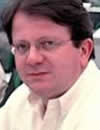 Juan Carlos Sanz is a journalist for El País daily newspaper. Juan Carlos Sanz graduated in Law from the University of Zaragoza in Spain and obtained his Master in Journalism from UAM Madrid. He has worked as a Special Correspondent for El País concentrating on the political situation and conflicts in the Balkans (Bosnia, Croatia, Serbia; 1994 to1999), the Maghreb (Algeria, Morocco, the Western Sahara; 1996 to 2001), Middle East (Egypt, Libya, Iraq; 2002 to 2005) and followed closely the evolution of Turkey since 1995. Juan Carlos Sanz received the Journalism Award Ortega y Gasset for his reporting of the war from inside Iraq (March and April 2003).
Juan Carlos Sanz is a journalist for El País daily newspaper. Juan Carlos Sanz graduated in Law from the University of Zaragoza in Spain and obtained his Master in Journalism from UAM Madrid. He has worked as a Special Correspondent for El País concentrating on the political situation and conflicts in the Balkans (Bosnia, Croatia, Serbia; 1994 to1999), the Maghreb (Algeria, Morocco, the Western Sahara; 1996 to 2001), Middle East (Egypt, Libya, Iraq; 2002 to 2005) and followed closely the evolution of Turkey since 1995. Juan Carlos Sanz received the Journalism Award Ortega y Gasset for his reporting of the war from inside Iraq (March and April 2003).
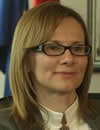 Radmila Šekerinska is a Member of Parliament of the Republic of Macedonia and President of the National Council for European Integration. In June 2008, she was elected Vice President of the Socialist International. Ms Šekerinska was Deputy Prime Minister in charge for European Integration, from 2002 to 2006, a period in which Macedonia was granted EU candidate status. In 2005, Ms Šekerinska was presented with a Young Global Leader award by the World Economic Forum. She holds a MA in International Relations from the Fletcher School of Law and Diplomacy as well as a BSc in electrical engineering from the University St. Cyril & Methodius in Skopje.
Radmila Šekerinska is a Member of Parliament of the Republic of Macedonia and President of the National Council for European Integration. In June 2008, she was elected Vice President of the Socialist International. Ms Šekerinska was Deputy Prime Minister in charge for European Integration, from 2002 to 2006, a period in which Macedonia was granted EU candidate status. In 2005, Ms Šekerinska was presented with a Young Global Leader award by the World Economic Forum. She holds a MA in International Relations from the Fletcher School of Law and Diplomacy as well as a BSc in electrical engineering from the University St. Cyril & Methodius in Skopje.
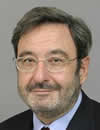 Narcís Serra is President of CIDOB Foundation since 2000. During this time, he has been the driving force behind the creation of the Barcelona Institute for International Studies (IBEI). He is currently the President of Caixa Catalunya and Chairman of the Board of the National Museum of Art of Catalonia (MNAC). Recently he published "La Transición Militar" (Barcelona 2008) and, together with Joseph Stiglitz, "The Washington Consensus Reconsidered" (Oxford 2008). Narcís Serra obtained a B.A. in Economics from the University of Barcelona, where he held the position of Teaching Assistant in the College of Economics. Following his university experience, in 1977, he was named Catalan Minister of Town and Country Planning and Public Works in the Government of the Generalitat, and in April 1979, he was elected Mayor of Barcelona. In 1982, he was named Spanish Minister of Defence in the Government of Felipe González, and in 1991, he was named Vice President of the Spanish Government. From 1986 until 2004, Narcís Serra was a Deputy for Barcelona in the Spanish Congress.
Narcís Serra is President of CIDOB Foundation since 2000. During this time, he has been the driving force behind the creation of the Barcelona Institute for International Studies (IBEI). He is currently the President of Caixa Catalunya and Chairman of the Board of the National Museum of Art of Catalonia (MNAC). Recently he published "La Transición Militar" (Barcelona 2008) and, together with Joseph Stiglitz, "The Washington Consensus Reconsidered" (Oxford 2008). Narcís Serra obtained a B.A. in Economics from the University of Barcelona, where he held the position of Teaching Assistant in the College of Economics. Following his university experience, in 1977, he was named Catalan Minister of Town and Country Planning and Public Works in the Government of the Generalitat, and in April 1979, he was elected Mayor of Barcelona. In 1982, he was named Spanish Minister of Defence in the Government of Felipe González, and in 1991, he was named Vice President of the Spanish Government. From 1986 until 2004, Narcís Serra was a Deputy for Barcelona in the Spanish Congress.
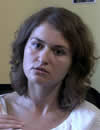 Besa Shahini is one of the three founding members and former Executive Director of the Kosovar Stability Initiative (IKS), a Pristina based ESI spin-off think tank. As director, she oversaw the development of IKS, was responsible for fundraising and outreach and has coordinated and managed all IKS's research projects. Before joining IKS, she had acquired vast experience from the field while researching the economy of Mitrovica, Viti and Gjilan municipalities. While in IKS, Ms Shahini was involved in researching and writing the studies on the socio-economic development of Pristina, and the post war reconstruction and development in Kosovo. She is a graduate of Political Science and Public Administration from York University in Toronto, Canada. Currently, she is an active Board Member of IKS and studying towards her Masters Degree in Public Policy at the Hertie School of Governance in Berlin.
Besa Shahini is one of the three founding members and former Executive Director of the Kosovar Stability Initiative (IKS), a Pristina based ESI spin-off think tank. As director, she oversaw the development of IKS, was responsible for fundraising and outreach and has coordinated and managed all IKS's research projects. Before joining IKS, she had acquired vast experience from the field while researching the economy of Mitrovica, Viti and Gjilan municipalities. While in IKS, Ms Shahini was involved in researching and writing the studies on the socio-economic development of Pristina, and the post war reconstruction and development in Kosovo. She is a graduate of Political Science and Public Administration from York University in Toronto, Canada. Currently, she is an active Board Member of IKS and studying towards her Masters Degree in Public Policy at the Hertie School of Governance in Berlin.
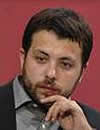 Eduard Soler i Lecha is the coordinator of the Mediterranean and Middle East Programme at CIDOB Foundation (Barcelona) and also associate lecturer in International Relations at the Autonomous University of Barcelona. He was research fellow at the Institute of European Studies of this University and visiting researcher in Bogazici University (Istanbul) and Centre for European Policy Studies (Brussels). His fields of research are: Turkey's accession process to the EU, Euromediterranean Relations, Spanish policy towards this region and Security in the Mediterranean. His PhD thesis analyzed the evolution of the position of several member states and EU institutions towards Turkey's EU membership between 1997 and 2004. He also published in journals such as Mediterranean Politics, Insight Turkey, Europe's World or Turkish Policy Quarterly. He has recently coordinated a special issue of the Revista CIDOB d'Afers Internacionals on Spanish Mediterranean and Arab policies.
Eduard Soler i Lecha is the coordinator of the Mediterranean and Middle East Programme at CIDOB Foundation (Barcelona) and also associate lecturer in International Relations at the Autonomous University of Barcelona. He was research fellow at the Institute of European Studies of this University and visiting researcher in Bogazici University (Istanbul) and Centre for European Policy Studies (Brussels). His fields of research are: Turkey's accession process to the EU, Euromediterranean Relations, Spanish policy towards this region and Security in the Mediterranean. His PhD thesis analyzed the evolution of the position of several member states and EU institutions towards Turkey's EU membership between 1997 and 2004. He also published in journals such as Mediterranean Politics, Insight Turkey, Europe's World or Turkish Policy Quarterly. He has recently coordinated a special issue of the Revista CIDOB d'Afers Internacionals on Spanish Mediterranean and Arab policies.
 Alexandra Stiglmayer is one of the founding members of the European Stability Initiative (ESI), an independent not-for-profit think-tank that was launched in 1999 and deals with the Balkans, Turkey, the Caucasus and wider EU enlargement issues combining thorough field-research with in-depth analysis to formulate sound policy recommendations. A journalist by education, Alexandra covered the wars in former Yugoslavia from 1992 to 1996 for TIME Magazine, The Dallas Morning News, Die Woche and other US and German media. During that time, she wrote a book about war-time rape of women in Bosnia and Herzegovina. In 1997/1998, she was based in Berlin for TIME Magazine. From 1998 to 2002, she worked for the Office of the High Representative in Sarajevo as the head of the press office, chief spokesperson and media expert. Following three years as a speechwriter for the European Commission, she joined ESI in 2006 as a full-time senior analyst based in Brussels.
Alexandra Stiglmayer is one of the founding members of the European Stability Initiative (ESI), an independent not-for-profit think-tank that was launched in 1999 and deals with the Balkans, Turkey, the Caucasus and wider EU enlargement issues combining thorough field-research with in-depth analysis to formulate sound policy recommendations. A journalist by education, Alexandra covered the wars in former Yugoslavia from 1992 to 1996 for TIME Magazine, The Dallas Morning News, Die Woche and other US and German media. During that time, she wrote a book about war-time rape of women in Bosnia and Herzegovina. In 1997/1998, she was based in Berlin for TIME Magazine. From 1998 to 2002, she worked for the Office of the High Representative in Sarajevo as the head of the press office, chief spokesperson and media expert. Following three years as a speechwriter for the European Commission, she joined ESI in 2006 as a full-time senior analyst based in Brussels.
 Kai Strittmatter studied Sinology in Munich, Xi'an (China) and Taipeh (Taiwan). In 1994, he joined Süddeutsche Zeitung as an editor at the Foreign Desk. From 1997 to 2005 he was correspondent in Beijing, China. Since 2005, Mr Strittmatter is Süddeutsche Zeitung's Turkey correspondent in Istanbul.
Kai Strittmatter studied Sinology in Munich, Xi'an (China) and Taipeh (Taiwan). In 1994, he joined Süddeutsche Zeitung as an editor at the Foreign Desk. From 1997 to 2005 he was correspondent in Beijing, China. Since 2005, Mr Strittmatter is Süddeutsche Zeitung's Turkey correspondent in Istanbul.
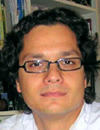 José Ignacio Torreblanca joined the European Council on Foreign Relations as a Senior Research Fellow and Head of the Madrid Office in the European Council on Foreign Relations (ECFR) in September 2007. Previously he spent three years at the Madrid's based Elcano Royal Institute for International Affairs as Senior Analyst for EU affairs. He has a doctorate in Political Science and Sociology from the Universidad Complutense de Madrid and teaches political science and EU affairs at the distance learning University in Madrid (UNED). He is also a Fellow at the Juan March Institute of Studies in Madrid. He has been Fulbright scholar in the European Union-US Program, Lecturer at the George Washington University in Washington DC and a researcher at the European University Institute in Florence. He is also a member of the editorial board of the journal Foreign Policy en español, co-editor of blogeuropa.eu and a regular columnist for the daily El País.
José Ignacio Torreblanca joined the European Council on Foreign Relations as a Senior Research Fellow and Head of the Madrid Office in the European Council on Foreign Relations (ECFR) in September 2007. Previously he spent three years at the Madrid's based Elcano Royal Institute for International Affairs as Senior Analyst for EU affairs. He has a doctorate in Political Science and Sociology from the Universidad Complutense de Madrid and teaches political science and EU affairs at the distance learning University in Madrid (UNED). He is also a Fellow at the Juan March Institute of Studies in Madrid. He has been Fulbright scholar in the European Union-US Program, Lecturer at the George Washington University in Washington DC and a researcher at the European University Institute in Florence. He is also a member of the editorial board of the journal Foreign Policy en español, co-editor of blogeuropa.eu and a regular columnist for the daily El País.
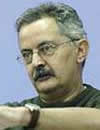 Pere Vilanova is Professor of Political Science and Administration in the Faculty of Law at the University of Barcelona. He is also Director of the Division of Strategic and Security Affairs at the Ministry of Defence in Madrid. He has been a visiting fellow and/or scholar at the Institute for Policy Studies, Washington, Universidad Autonoma de Mexico, London School of Economics, Faculte de Sciences Juridiques et Politiques, Nanterre (Université Paris IX) among others. Mr Vilanova has been legal adviser of the Parliament of Andorra for the Draft of the Constitution (1991/1992), Judge at the Constitutional Court of Andorra (1993/2003), and President of the Constitutional Court of Andorra (2000/2001). He was the international advisor of Carlos Westendorp, Head of the OHR in Bosnia-Herzegovina (1998/1999) as well as Adviser for the Draft of the Electoral Law.
Pere Vilanova is Professor of Political Science and Administration in the Faculty of Law at the University of Barcelona. He is also Director of the Division of Strategic and Security Affairs at the Ministry of Defence in Madrid. He has been a visiting fellow and/or scholar at the Institute for Policy Studies, Washington, Universidad Autonoma de Mexico, London School of Economics, Faculte de Sciences Juridiques et Politiques, Nanterre (Université Paris IX) among others. Mr Vilanova has been legal adviser of the Parliament of Andorra for the Draft of the Constitution (1991/1992), Judge at the Constitutional Court of Andorra (1993/2003), and President of the Constitutional Court of Andorra (2000/2001). He was the international advisor of Carlos Westendorp, Head of the OHR in Bosnia-Herzegovina (1998/1999) as well as Adviser for the Draft of the Electoral Law.
 Alida Vračić is Director of Populari, a Bosnian think-tank. Populari carries out research on socio-economic aspects of the Bosnian society in the post-war and pre-European integration phase. Prior to founding the Centre for research and analysis in Sarajevo in 2000, Alida worked for ESI as a researcher based in Sarajevo, and ESI liaison officer on projects about judiciary and economic policy related issues. She has led several projects in the Balkans for the Human Rights Centre of Sarajevo University and Spanish Institutional Programme (AECI), working on the projects dealing with judicial efforts prior to the Hague experience and media role in it. Before joining the prosecutor's team, in the early stages of the establishment of the State Court of Bosnia and Herzegovina, at the War Crimes Chamber, Alida dealt with legal matters of Human Rights violations at the Human Rights Commission within Constitutional Court of Bosnia and Herzegovina. She studied law science in Sarajevo, penal system and criminal proceeding law in Austria, and international public policy and international relations at University College London in the UK.
Alida Vračić is Director of Populari, a Bosnian think-tank. Populari carries out research on socio-economic aspects of the Bosnian society in the post-war and pre-European integration phase. Prior to founding the Centre for research and analysis in Sarajevo in 2000, Alida worked for ESI as a researcher based in Sarajevo, and ESI liaison officer on projects about judiciary and economic policy related issues. She has led several projects in the Balkans for the Human Rights Centre of Sarajevo University and Spanish Institutional Programme (AECI), working on the projects dealing with judicial efforts prior to the Hague experience and media role in it. Before joining the prosecutor's team, in the early stages of the establishment of the State Court of Bosnia and Herzegovina, at the War Crimes Chamber, Alida dealt with legal matters of Human Rights violations at the Human Rights Commission within Constitutional Court of Bosnia and Herzegovina. She studied law science in Sarajevo, penal system and criminal proceeding law in Austria, and international public policy and international relations at University College London in the UK.
PHOTOS
